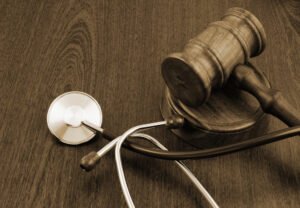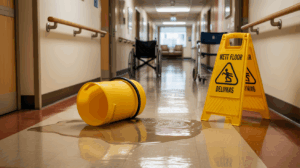
If you were injured because of a medical care provider’s negligence, you could have a viable medical malpractice case. However, what happens if they argue that you were partly to blame for your own injuries? When this occurs, the state’s comparative negligence laws could affect your right to recover compensation and how much compensation is available to you.
If the defendant can convince a judge or jury that the victim contributed to their own injuries, it could mean they have to pay out significantly less or nothing at all. However, it’s important to note that the laws regarding the percentage of blame differ for malpractice claims. If you work with a Florida medical malpractice lawyer, they will help you defend against allegations of comparative negligence and pursue maximum compensation based on the case facts.
What Is Comparative Negligence In A Malpractice Case?
Comparative negligence is a legal doctrine used to assign shared fault in injury cases. If you were hurt and contributed to your own injuries, this doctrine could reduce the compensation you can recover in proportion to your share of the blame.
For example, if a jury finds your doctor was 80 percent responsible for your injuries and you were 20 percent responsible, you can only recover up to 80 percent of the value of the damages in your case.
States set their own shared fault laws, with some not allowing victims to recover any money if they contributed to their injuries in any way and others letting victims recover if they are up to 99 percent responsible.
Florida’s Modified Comparative Negligence Rule And Malpractice
Under Florida Statutes § 768.81, Florida follows a rule known as modified comparative negligence. Some personal injury claims (but not all) follow this modified negligence system, and those who are more than 50 percent liable for their injuries cannot recover damages. Those who are less than 50 percent liable can receive compensation reduced by their degree of fault.
However, medical malpractice cases are not subject to this threshold. A victim can seek compensation regardless of their percentage of fault.
This statute makes it especially important to build a strong case against the negligent medical care provider. You must clearly demonstrate their negligence and carefully document your full range of damages while also mitigating any allegations that you caused or contributed to your own injuries.
Providers Often Try To Blame Victims Of Medical Malpractice Cases
One way insurance carriers or defendants in Florida medical malpractice cases try to minimize their payouts is by arguing that the victim’s own actions or inactions caused or worsened the injury. Some of the ways you might see this work in your case include accusations that you:
- Failed to follow medical advice
- Ignored post-operative instructions
- Delayed treatment despite warning signs
- Provided an inaccurate medical history
- Refused recommended tests
- Skipped follow-up appointments
In addition to trying to shift blame onto the patient, healthcare providers and their insurers often use other defense strategies to reduce or avoid liability. They may argue that the care provided met the accepted medical standard, claim the injury was an unavoidable risk of treatment, or insist that the harm resulted from a pre-existing condition rather than negligence.
It’s also common for defendants to challenge whether their actions directly caused the patient’s injuries. These tactics are designed to create doubt about the provider’s responsibility and limit the amount of compensation they have to pay.
When liable parties use these arguments, they are often hoping to reduce their liability or shift the blame entirely. Their goal is to pay out as little as possible and blaming you for your own injuries is a common tactic they use.
Proving Negligence and Liability In A Florida Malpractice Case
When there are allegations of comparative fault, you want to have the strongest case possible against the liable party or parties. This will help you show that the negligent care provider—not you—caused your injuries and you can recover maximum compensation.
Your medical malpractice lawyer will investigate and gather evidence to show that your medical care provider breached the standard of care and caused your injuries. This could include:
- A qualified medical expert who will review your records and provide a sworn affidavit that you likely have a case
- Medical records and diagnostic reports
- Other testimony from medical experts
- Witness statements
- Documentation of appointments, prescriptions, and treatment history
Your attorney will work to mitigate any allegations that you did not take all necessary steps to heal and recover from your injuries as soon as possible and avoid any further harm. This could become a focus of your case strategy because of the effects it could have on your payout.
Why You Need A Medical Malpractice Attorney To Fight Allegations of Shared Fault
Hospitals, doctors, malpractice defense lawyers, and malpractice insurance companies know that if they can shift enough of the blame onto the victim, they can avoid having to pay as much as the person deserves.
If this occurs, you will not be able to recover the full amount of money you need to cover your care costs, income losses, and other damages. You want to have a strong medical malpractice lawyer on your side to manage your case. They will:
- Understand how Florida’s modified comparative fault system works
- Prepare for and fight against defense strategies that try to blame you
- Manage the medical malpractice claims process following all required procedures
- Know how to present clear, compelling evidence of medical negligence
The sooner you hire an attorney, the better your chances of having strong evidence to counter comparative negligence arguments. Contact an attorney as soon as you learn your injuries may be due to medical negligence.
How Long Do I Have To File A Florida Medical Malpractice Lawsuit?
Per Florida Statutes § 95.11, you may only have up to two years from your injury date to sue. However, there is an in-depth pre-suit process you must navigate and steps to take before this, too. The best way to protect your rights and ensure you can recover maximum compensation is to hire an attorney as early in the process as possible.
Discuss Your Medical Malpractice Case With Our Team
At Anidjar & Levine, we can evaluate your situation, explain how comparative negligence may apply, and fight to protect your right to fair compensation. We provide free consultations. Call us today to learn how a Florida medical malpractice lawyer from our team can help you get justice.










